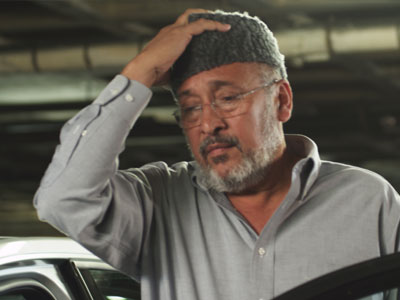
Academy Award-winning sound designer and BAFTA awardee Resul Pookutty was in Kolkata recently to attend a seminar on sound of StageCraft Foundation at ICCR.
In an interview with HT, Pookutty opens up on his long association with Kolkata, Ritwik Ghatak and how the sound of the Ambassador car still fascinates him. Excerpts:
You have done the sound designing for Leslee Udwin’s documentary India’s Daughter and Raj Amit Kumar’s Unfreedom. Unfortunately, both have been banned in India.
We, as a nation, are presently bothered about the image of the country. What is this image of India? This image has not been created by us. It has been created by the sages and saints of the country. How can you ban something in the name of that? If you want to look at what the sages and saints of India have created, please take a walk at Ajanta Caves and Ellora Caves. It’s purely lack of understanding.
On the other hand if you look at the history of banning films in India, probably not more than 100 films have been banned in the last 70 years. America has banned more films and France even more. So, every society has been intolerant towards the work of art.
I don’t think that’s a sign of a civilised society. What’s a true meaning of democracy? It means you have an opinion and that opinion has to be transparent and should be available to people. I am not saying don’t ban. I am saying if you feel the need to ban it, give valid reasons why not to watch a work of art.
At the age of digital revolution, when youngsters are going at supersonic speed, you cannot ban anything in this world. You will make a fool of yourself.
Do you feel there is more awareness on the concept of sound designing among people today after you won the Oscar?
Yes, success has helped. But I would attribute it to the media. If Oscar hadn’t happened, I don’t know if they would have taken it so seriously. It’s a popular award and an Asian was nominated for the first time. Of course it had a huge potential and value. I feel extremely blessed that the media in the country celebrated my success, which helped me a lot. More than I winning the Oscar, it was the media, which made an effort and took it to the public and created this awareness.
Youngsters are always looking for newer avenues and when someone gets attracted to this profession, more education goes into this area of work and the profession becomes more competitive and diverse.
Has this win had any positive impact on the film industry?
Their attitude towards me has, of course, changed.
But what about the other sound designers?
The younger filmmakers have started accepting that there is a great possibility of sound in films. There were certain people who always understood about the seriousness of sound in a film. Some really good work is happening in mainstream cinema now. It’s not that everything has changed but a lot of things have changed.
You are highly influenced by Ritwik Ghatak.
I came to cinema accidentally. I come from the Ghatak school of filmmakers. Meghe Dhaka Tara (1960) was shown as part of an orientation programme at the Film and Television Institute of India. It blew my mind. I owe him a lot.
I am not endorsing the way of life Ghatak has led. There are certain things he has practiced with his art, which are dynamic. When he was working in theatre, he had no shame in saying, ‘If theatre can’t reach out to more people, I will do cinema. And he ventured into cinema.
I believe if Ghatak lived today, he would have definitely worked in television and the content would have changed to a great extent. I took a lot from West Bengal.
Another of my favourite filmmakers is Uday Shankar, who made Kalpana, is also from Bengal.
You also said that you are interested in doing a Bengali film.
Few filmmakers such as Srijit (Mukherji) came to me. I adore dada’s (read Buddhadeb Dasgupta) films. He is one of the most poetic filmmakers we have today. I enjoyed working with him on Anwar Ka Ajab Kissa. He is a complete artist. I would love to do a film in Kolkata.
You have been designing sound for international projects. Have you ever thought of shifting your base?
No, I don’t think I need to shift. My work in India has brought me all this recognition and not the work that I do abroad. When I first worked in London in 1996, a studio offered me a job there. When I worked in Los Angeles in 2004, I was offered a job. I didn’t accept it. I never felt the need of leaving my country. I have no plans of leaving my country and settle elsewhere as a second-class citizen.
Here I am doing the kind of work others dream of doing. When I enjoy such a status, I don’t think I need to leave all these and go to Hollywood. They are still coming to me. What’s the need for going and settling there? For better money and lifestyle? Yes, the money is more and living standards are better but this is my country. My country has problems and I would rather be in my country and address those problems.
What are the sounds that you like in Kolkata?
In modern times, I would say the sound of ambassador. I have used it to a great extent in Anwar Ka Ajab Kissa. I also like the sound of the mithaiwalas.


